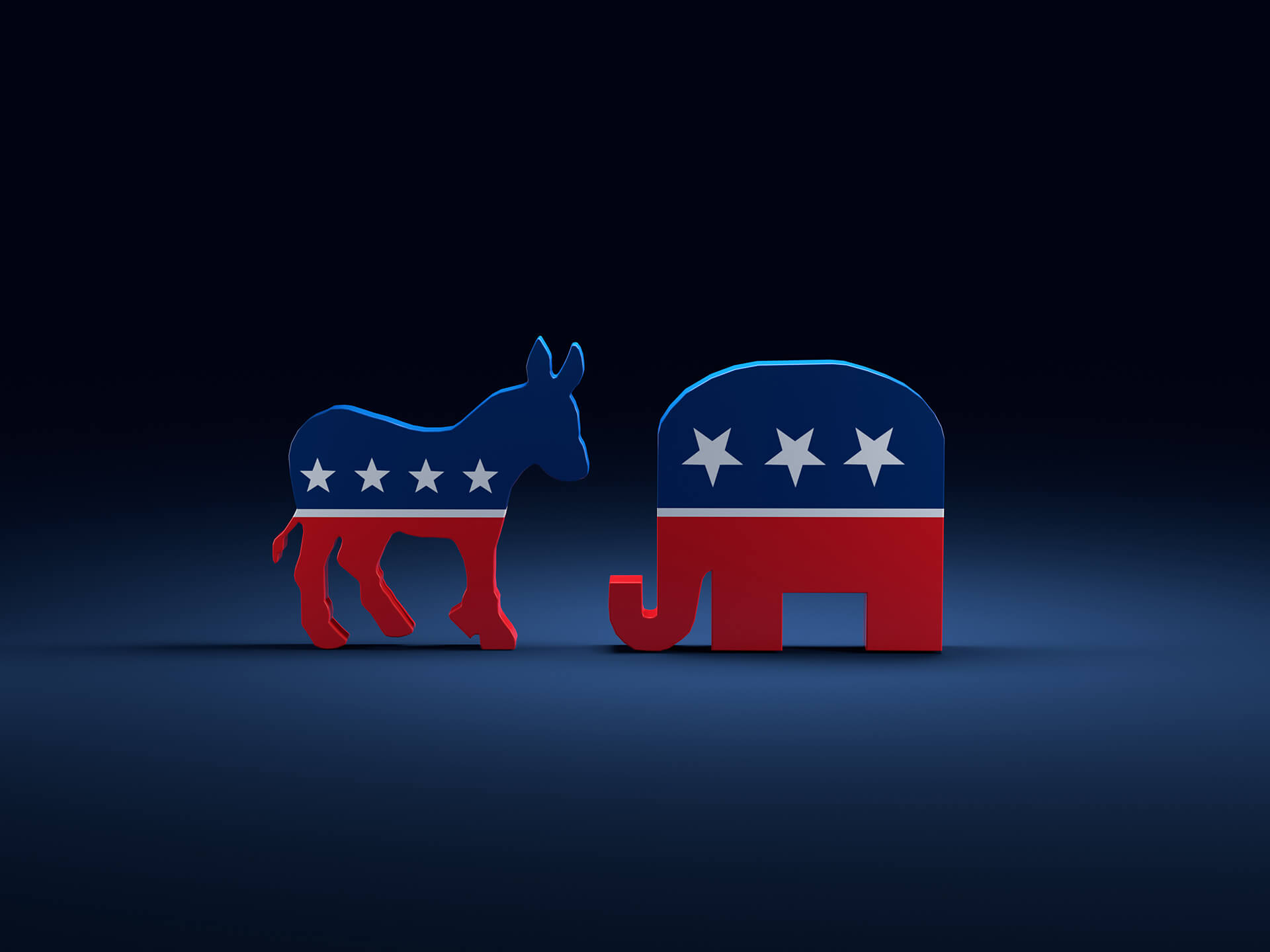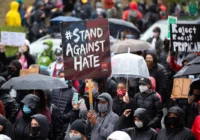The United States (US) is on a perilous path that has a potential to end in tragedy, pulling apart the nation. As January 6 demonstrated, a few thousand resolute individuals can initiate the fragmentation of the union, a process that began with the bickering between Democrats and the Republicans. If it hopes to survive, the US must change its course.
In contrast to popular belief, life in the US is not as rosy as it may appear in the popular media. Americans suffer from inequality in gender, income, and wealth. They receive poor healthcare and face frequent violence. Minority groups are routinely subjected to cultural and racial discrimination. Poverty and homelessness are visibly growing. Minorities and the poor disproportionately die from the COVID-19 and its variants.
Will American Democracy Perish Like Rome’s?
In the US, human rights have deteriorated. Nepotism, corruption, racism, and impunity of much of the criminal class persist. Former US President Donald Trump retained his immediate family members among his top advisors. He threatened and harassed political opponents, whistleblowers, and others. He pardoned criminal associates and friends. His administration continued promoting discrimination and xenophobic nationalism. US President Joe Biden is still unable to explain how his son Hunter secured a high paying directorship in Ukraine’s largest privately owned gas producer Burisma Holdings Ltd when his father was the White House’s point man for that country. US presidents often enjoy impunity with regard to such arrangements.
The list of human rights’ concerns is impressive in a nation that accuses other nations of not living up to the highest standards. It includes violence against women and girls, an increasing number of hate crimes, the tolerance of gun violence and mass shootings, abuse of Native American women and girls, permitting an environment of Islamophobia, a carceral system that reduces 1.3-percent of the population to modern-day slavery, and international trafficking of women and children.
In particular, the judicial system rather than reducing injustice perpetuates it.
The US possesses the world’s highest criminal incarceration rate, disproportionately imprisoning Native Americans and blacks. The justice system routinely excuses law enforcement guilty of excessive force employed against minorities, protesters, detainees, and prisoners. The US by far leads all other democracies in “police killings”. A high number of detainees die in custody and abuse of migrant workers and asylum seekers is rampant. In 2022, a major blow to women’s rights was especially initiated by the US Supreme Court’s reversing the 1973 Roe v. Wade, which gave rights to abortion for nearly 50 years.
January 6 Insurrection
Many of the problems derive from the competitive political rivalries between the two dominant parties. Both have developed the reflex of serving the rich at the expense of other segments of the population. The bickering between Democrats and Republicans peaked on January 6, 2021 in the attack on the US Capital in Washington, D.C.. That assault could only be compared with the 1814 British attack on Washington DC when they set the White House on fire.
Time for Americans to Stand for a New Moral Core
On January 6, 2021, the US President Donald Trump gave a speech before a large crowd of his supporters in Washington, D.C.. He persisted in promoting his conspiracy theory claiming that Democrats had stolen the presidential election. He repeatedly asserted that Democrats rigged the Presidential election in favor of their candidate. This inspired his supporters to march to the Capitol to threaten the US Congress as it was about to certify the election of Democratic candidate Joe Biden’s victory. “All of us here today do not want to see our election victory stolen by emboldened radical-left Democrats,” said Mr. Trump. He urged the supporters to take action. “Together, we will drain the Washington swamp and we will clean up the corruption in our nation’s capital,” he said.
Inspired by Trump’s bombastic rhetoric, his supporters broke into the Capitol and rampaged through its corridors, forcing the US Vice President Mike Pence and the members of the US Congress to flee to save their lives. Several people died before it was brought under control. That assault on the Capitol did not make Mr. Trump damp down his rhetoric. Instead, it impelled him to repeat that the election was fraud and rigged by the Democrats. His position fortified his standing among Republicans, many of whom question the validity of the 2020 election results and demand for more restrictions on voting rights.
The insurrection could have turned into a revolution, and proved fatal to American democracy.
Power of the people
We must not underestimate the power people have to change things. We should remember, for example, that the Soviet Union headquarters in Moscow was not attacked by resurrectionists but fell apart under pressure from generally peaceful nationalist protesters. The Soviet fall simply began when some small nationalist groups in Latvia and Lithuania demanded independence for their republics. Other republics gradually joined the movement with similar demands, leading, within 2 years, to the fall of the Soviet Union in December 1991.
In the case of the January 6 resurrection, we might imagine what would have happened if the police had faced an aggressive confrontation from the insurrectionists. Camouflaged federal police might have responded heavy-handedly in Humvees as the local police had done in the 2014 Ferguson crisis. The assembled crowds were protesting the killing by a white police officer of an unarmed African-American 18-year-old, Michael Brown., At the moment the fatal shots were fired, the teenager was reportedly “trying to surrender”. As the protests grew, the police didn’t hesitate to greet the crowd with “teargas and stun grenades.”
If Trump had ordered something similar by calling out the National Guard, it would have resulted in a large number of the insurrectionists being brutally killed. That in turn would have incited large numbers of people across the country to come out in support of the insurrectionists. Trump would then have been in a position to declare a national emergency. That would then serve as an excuse for remaining in the White House and canceling Mr. Biden’s coming inauguration. Protest movements would have expanded and intensified, pitching Democrats against Republicans. General mayhem would have followed and the US and its famed constitution , could have become history.
Superpowers are not invincible
In 1985, people assumed that the Soviet Union, the other superpower that shared a claim to global domination, was invincible. In March of that year, Mikhail Gorbachev was elected General Secretary of the Communist Party in the Soviet Union. A year later in February 1986, he introduced a policy orientation known as glasnost (“openness”) and perestroika (“restructuring”).
Media Freedom in the Former Soviet Union
Focused on opening the prospects for world peace, Gorbachev enthusiastically proposed the concept of a new world order at the UN General Assembly in December 1988. His initiative played out in unanticipated ways. In November 1989, the Soviets under Gorbachev allowed the Berlin Wall to fall. That would eventually lead to the unification of East and West Germany in October 1990.
In March 1990, the Soviet Union’s Congress of the People’s Deputies elected Gorbachev as its president. He pushed for an amendment to the Soviet constitution intended to strengthen his position as president. That month, Lithuania declared its independence, and Latvia followed in May.
By November 1991, nationalists in Armenia, Azerbaijan, Belarus, Estonia, Georgia, Kirgizia Moldova, Tajikistan, Ukraine, Uzbekistan, and other Soviet republics arose to declare their independence from the Soviet Union. To Gorbachev’s credit, in contrast with his predecessors, he refrained from using brutal force to restore the dying order.
In December 1991, to the disbelief of even the foreign policy experts in the US, the Soviet Union, a global superpower collapsed. Much of the old Soviet world collapsed with it.
The US World’s Superpower
With the fall of the Soviet Union, the US emerged as the world’s unique superpower. With such power goes immense ethical responsibility. It creates the opportunity to collaborate with other nations in enhancing human rights, freedom from oppression, and global peace.
The US Tries to Make a Fine Distinction in Afghanistan
The US found itself with a chance to redefine its role in the world. The most obvious urgency was to fill the void that the Soviets had left behind by saving the former republics of the Soviet bloc from falling into economic collapse, ethnic tension, and political instability. This would have played a major role in leading the world towards the ideals of freedom and peace.
President George H. W. Bush hadn’t forgotten Gorbachev’s call for a “new world order.” Appropriating it for his own purposes, he referred to it over forty times thereafter, turning it into a personal slogan. But like most slogans, the repeated declarations were little more than talk. Since then, the US has persistently contributed to global conflicts by venturing military into various countries and threatening others with either invasion or sanctions. Instead of becoming a global peacemaker, the US has become the world’s worst troublemaker.
Following the US invasion of Iraq and the fiasco of Afghanistan, the standing of the US even among its allies has reached an historic low. Furthermore, the position of the US as the world’s unique superpower is being challenged by its adversaries, most notably China, Iran, and Russia. If the US intends to remain a major player in international affairs, it will need to change its course. To start, it must first clean up its house.
An action plan
“The time is always right to do the right thing,” said Martin Luther King. The US should learn the major lesson from the fall of the Soviet Union: being a superpower is no guarantee for survival when people begin to rise and challenge its authority. As January 6 has shown, the biggest threat to the US appears to be domestic. For its own good, the US must seriously address its own internal issues.
Biden’s Hyperbolic Fawning Before the CIA
To carry out its ethical responsibilities, the US could start with two important steps. The first would be to give opportunities to more than the two established parties that function as a permanent duopoly. So long as there are only two favored parties, the rivalries between them to govern the nation will continue, polarizing the electorate with the risk of dissolving an ever more fragile union.
The second would be to reverse the trend of outrageously funding the military and spend more generously to improve domestic prosperity. Both the Soviet Union and Nazi Germany were built on strong, advanced military forces. People thought both of them were unbeatable, yet neither exists today.
But there is more to do. To ensure domestic tranquility the US should provide more opportunity to nearly 35 million Americans who live in poverty. It should begin to implement programs to elevate women and halt widespread and alarming violence against women and girls. It should have the honesty to refrain from labeling — on the basis of ethnicity, race, and religion — some crimes as terrorism while dismissing others simply as a personal psychological disorder.
It is also time to make right certain obvious historical wrongs by addressing the question of persistent cultural and racial injustice against Native Americans, African-Americans, and other minorities. And for a country that claims to believe in human rights, the US should make a real effort to provide intensive training for judicial and law enforcement personnel on how human rights play out, notably by respecting fellow human beings regardless of gender, race, religion, and ethnicity.
As for US citizens, to function in an increasingly complex world, instead of hiding behind a superficial idea of “exceptionalism,” you should take seriously the responsibility leadership implies. What are the buzzwords and propaganda patterns of your news station, your peers, your president? Instead of repeating them blind, try another approach. Think. Reason. Criticize. Elect ethical people who truly represent your interests. It is only then that you can bring to overcome inequalities, to prosper, and go boldly forward on the world stage in unison. Then, you can proudly say, “America is great”.
The views expressed in this article are the author’s own and do not necessarily reflect Fair Observer’s editorial policy.
Support Fair Observer
We rely on your support for our independence, diversity and quality.
For more than 10 years, Fair Observer has been free, fair and independent. No billionaire owns us, no advertisers control us. We are a reader-supported nonprofit. Unlike many other publications, we keep our content free for readers regardless of where they live or whether they can afford to pay. We have no paywalls and no ads.
In the post-truth era of fake news, echo chambers and filter bubbles, we publish a plurality of perspectives from around the world. Anyone can publish with us, but everyone goes through a rigorous editorial process. So, you get fact-checked, well-reasoned content instead of noise.
We publish 2,500+ voices from 90+ countries. We also conduct education and training programs
on subjects ranging from digital media and journalism to writing and critical thinking. This
doesn’t come cheap. Servers, editors, trainers and web developers cost
money.
Please consider supporting us on a regular basis as a recurring donor or a
sustaining member.
Will you support FO’s journalism?
We rely on your support for our independence, diversity and quality.







Comment